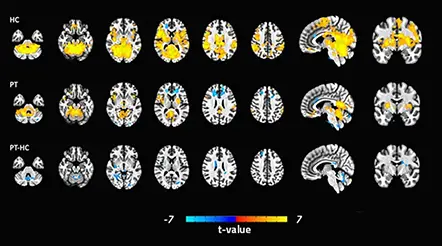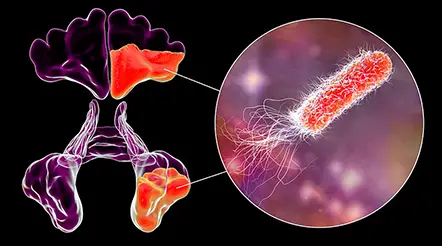


Introduction
Ann Kimball and John W. Johnson Center for Cellular Therapeutics at Houston Methodist
Houston Methodist Dr. Mary and Ron Neal Cancer Center
The Food & Health Alliance within the Houston Methodist Lynda K. and David M. Underwood Center for Digestive Disorders, Immunology Center and the Fondren Inflammation Collaborative
Houston Methodist Cockrell Center for Advanced Therapeutics
Paula and Joseph C. “Rusty” Walter III
Translational Research Initiative
Jerold B. Katz Academy of Translational Research
Infectious Diseases Research Fund
George and Angelina Kostas Research Center for Cardiovascular Medicine
New Endowed Chairs Positions
EnMed
Center for Bioenergetics
result
Clinical Research
Outcomes, Quality and Healthcare Performances
Restorative Medicine
Precision Medicine
Science in Service
of
Medicineresult
President's letter
2022 Metrics
Cycle of Translation
Visionary Gifts of Hope


Introduction

Ann Kimball and John W. Johnson Center for Cellular Therapeutics at Houston Methodist

Houston Methodist Dr. Mary and Ron Neal Cancer Center

The Food & Health Alliance within the Houston Methodist Lynda K. and David M. Underwood Center for Digestive Disorders, Immunology Center and the Fondren Inflammation Collaborative

Houston Methodist Cockrell Center for Advanced Therapeutics

Paula and Joseph C. “Rusty” Walter III Translational Research Initiative

Jerold B. Katz Academy of Translational Research

Infectious Diseases Research Fund

George and Angelina Kostas Research Center for Cardiovascular Medicine

New Endowed Chairs Positions

EnMed

Center for Bioenergetics

From Discovery to Clinic


What is "Discovery to Clinic"?

Clinical Research


Houston Methodist Conducts First-Ever Study into a Challenging Situation

Can Regulating Cellular Aging Mitigate Both Cancer and Heart Disease?

Innovative Treatment for Chronic Rhinitis is Safe and Effective


Masters of Disguise: Glioblastomas Trick the Immune System by Masquerading as Reproductive Tissue
Improved Options for Patients with Severe Retinal Vascular Disease

A New FDA-Approved Treatment for Sufferers of Chronic Constipation

Houston Methodist joins the Gulf Coast Consortia

Outcomes, Quality and Healthcare Performance


New Findings on RNA Helicases May Yield New Intestinal Disease Therapy

Houston Methodist and Pennsylvania State University Collaborate on a Smartphone App That Could Revolutionize Stroke Diagnosis

New Frontiers to Improve Cardiovascular Medicine and Disease Management

Ongoing Lessons in a Pandemic

Transplants can Boost Survival Rate of Patients with Unresectable Liver Cancers

Telehealth Video Visits During the COVID-19 Pandemic – a Glimpse into the Future?

SARS-CoV-2 Induced Chronic Oxidative Stress and Endothelial Cell Inflammation May Increase Likelihood of Cardiovascular Diseases and Respiratory Failure

Restorative Medicine


Lessening Pain After Knee Replacement Surgery

Do Motor Neurons First Die in the Brain? Study Provides Clues about ALS Origins

Bringing Back Hand Function in People with Complete Spinal Cord Injury

Novel Vascular Engineering Platforms Are a Boon for Bioengineering

Ultra-high-Resolution Scanner Reveals if Knee Injury Advances to Osteoarthritis

Houston Methodist Model Demonstrates Reversal from Heart Failure State, Creating the Potential for Innovative Treatment Avenues

Precision Medicine


Rapidly Scalable, All-Inducible Neural Organoids Could Facilitate Drug Screening for Neurological Diseases

Importance of the Coronary Artery Calcium Score in Risk Assessment and Prevention of Atherosclerotic Cardiovascular Disease

COVID-19 Infection in Crucial Brain Regions May Lead To Accelerated Brain Aging

Interleukin 9 Secreting Polarized T Cells Show Potential in Solid and Liquid Tumor Treatment

The NanoLymph: Implantable. Adaptable. Anti-cancer


Houston Methodist Joins the Gulf Coast Consortia
The Houston Methodist Research Institute has joined the Gulf Coast Consortia.
The GCC is a Houston-Galveston-based organization that is one of the largest inter-institutional academic cooperatives in the nation focused on building strong, collaborative, biomedical research groups and interdisciplinary training opportunities for PhD students and postdoctoral fellows. Baylor College of Medicine, Rice University, University of Houston, The University of Texas Health Science Center at Houston, The University of Texas Medical Branch at Galveston, The University of Texas MD Anderson Cancer Center and the Texas A&M University Institute of Biosciences and Technology also are members.
The core strength of the Houston Methodist research tradition lies in its collaborative, translational commitment and focus on solving clinician-driven challenges. This driving force is kindred to the GCC’s mission to integrate its member institutions' strengths to build an interdisciplinary, collaborative research infrastructure and training environment that surpasses the capability of any single institution.
The Houston Methodist Research Institute was always intended to be collaborative rather than competitive to focus exclusively on multi-disciplinary, translational research at the intersection of fields. Designed to form the bridge between traditional disciplines to develop treatments with ready applicability to human disease, the Research Institute uses its physical connection to the hospital and technological expertise in FDA approval pathways to streamline the process of translating laboratory research into treatments and cures for patients. Taking the approach of bridging disciplines with clinical needs and developing new technologies, the Research Institute focuses on shepherding innovations through preclinical and clinical development, clinical trials, FDA approval and commercialization. It is not degree granting, rather, it partners with programs seeking a translational or clinical perspective to its educational curriculum. The Research Institute training programs follow a traditional path — from graduate programs in clinical translation to professional level training in skills acquisition, advanced technology and biomedical research. Houston Methodist’s learners and leaders come from premier institutions around the world.
The Research Institute’s strengths in cancer, regenerative medicine, infectious disease, neuroscience and translational imaging technologies fit well with GCC’s existing and anticipated scientific endeavors, said Kathleen Matthews, Ph.D., a founder and chair emeritus of the GCC and Stewart Memorial Professor of Biochemistry and Cell Biology Emerita, Rice University.
“We are delighted that the Houston Methodist Research Institute has become the eighth member of the GCC, and we look forward to further engaging its faculty, researchers, postdoctoral fellows and staff in the many GCC research and training enterprises,” Matthews said.
“Over the years, the Research Institute has greatly valued our collaborations with institutions that are members of the GCC,” said Edward A. Jones, President and CEO of the Houston Methodist Research Institute. “Research synergies among GCC institutions create a culture of creativity that opens new opportunities for discoveries that positively impact human health. Membership in the GCC now provides a wonderful opportunity to add our many strengths to the consortium, including world-class research in cancer, heart and cardiovascular medicine, immunobiology, and nanomedicine, and more than twenty core facilities that provide our investigators and external researchers access to exceptional scientific technology.”
More from Discovery to Clinic
















